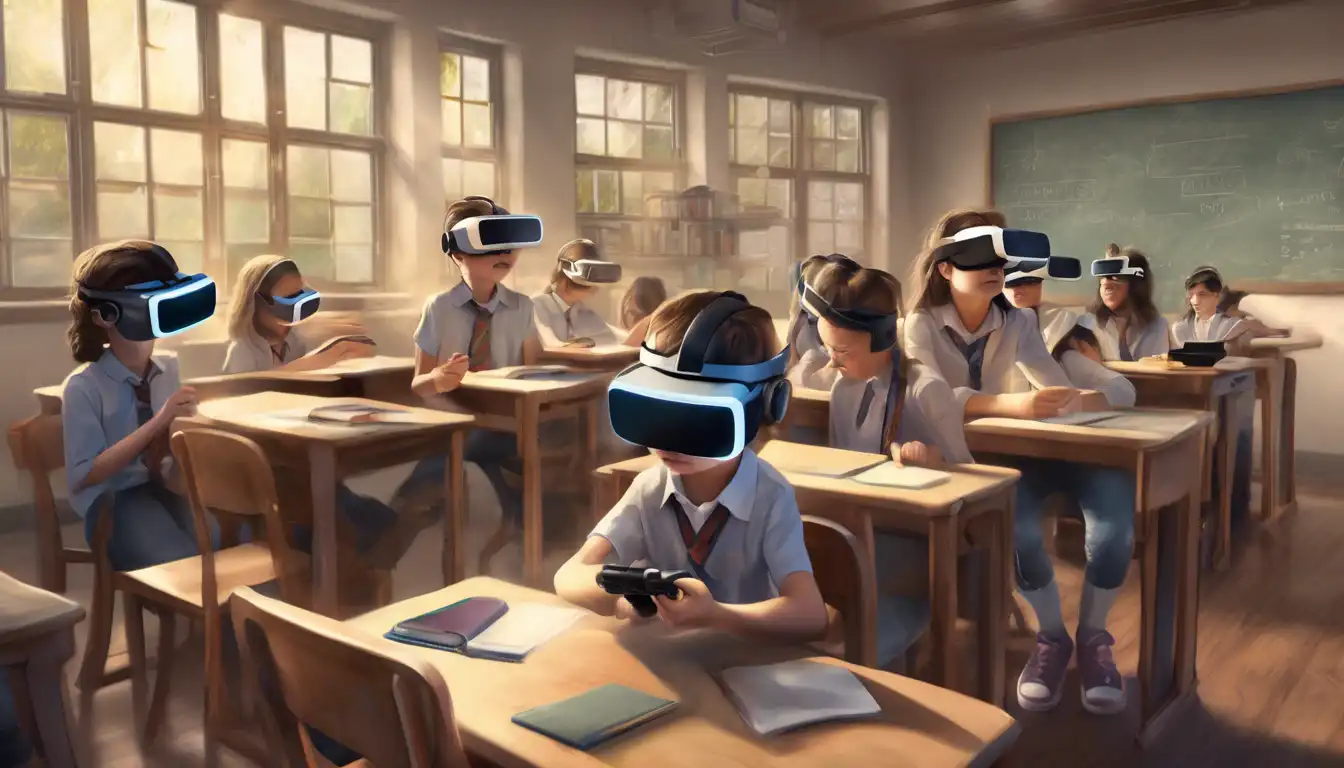The Transformative Impact of Virtual Reality in Learning Environments
Virtual Reality (VR) technology is revolutionizing the educational landscape, offering immersive learning experiences that were once beyond imagination. By simulating real-world environments, VR provides students with unique opportunities to explore complex concepts in a hands-on manner. This article delves into the potential of VR in education, highlighting its benefits, challenges, and future prospects.
Benefits of VR in Education
VR technology offers numerous advantages in educational settings, including:
- Enhanced Engagement: VR captivates students' attention by immersing them in interactive 3D environments, making learning more engaging and enjoyable.
- Improved Retention: Studies show that immersive learning experiences can significantly improve memory retention and recall.
- Accessible Learning: VR enables students to visit virtual field trips, historical sites, and even outer space, breaking geographical and physical barriers.
- Safe Practice Environments: From medical procedures to hazardous chemical experiments, VR provides a safe platform for students to practice and learn.
Challenges and Considerations
Despite its potential, the integration of VR in education faces several challenges:
- High Costs: The initial setup and maintenance of VR technology can be expensive for many educational institutions.
- Technical Limitations: Issues such as motion sickness and the need for high-performance hardware can hinder the VR experience.
- Content Development: Creating high-quality, educational VR content requires significant time and expertise.
Future Prospects
The future of VR in education is bright, with ongoing advancements in technology making it more accessible and effective. Innovations such as augmented reality (AR) and mixed reality (MR) are expected to further enrich the learning experience. As educators and developers continue to explore the possibilities, VR is set to become an integral part of the educational toolkit.
For more insights into innovative learning technologies, explore our EdTech Trends section.
Conclusion
Virtual Reality holds immense potential to transform education by making learning more interactive, engaging, and effective. While challenges remain, the benefits of VR in education are undeniable. As technology evolves, it will be exciting to see how VR continues to shape the future of learning.
